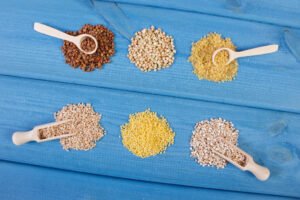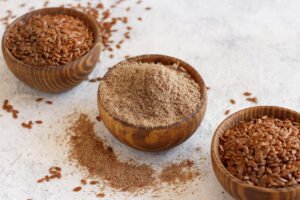In the quest for optimal canine health, antioxidants emerge as a critical component in combating the effects of oxidative stress and free radicals. Just as in humans, dogs are exposed to various environmental factors that can increase the production of free radicals, potentially leading to cellular damage and a host of health issues. Incorporating antioxidants into your dog’s diet is a natural and effective way to support their immune system, reduce inflammation, and promote overall well-being. Let’s explore how antioxidants can benefit our furry friends and which sources are best for their health.
Understanding Free Radicals and Oxidative Stress
Free radicals are unstable molecules that can cause damage to cells, proteins, and DNA by stealing electrons through a process known as oxidation. While the body naturally produces free radicals as a byproduct of metabolism, environmental factors such as pollution, radiation, and toxins can dramatically increase their numbers. Oxidative stress occurs when there’s an imbalance between free radicals and antioxidants in the body, leading to potential cellular damage and inflammation.
The Role of Antioxidants
Antioxidants are molecules that can donate an electron to free radicals without becoming destabilized themselves, effectively neutralizing the threat. They play a vital role in maintaining the oxidative balance, protecting cells from damage, and supporting the body’s natural defenses. For dogs, antioxidants can contribute to a stronger immune system, healthier skin and coat, and may even slow the aging process.
Natural Sources of Antioxidants for Dogs
Incorporating antioxidant-rich foods into your dog’s diet is an excellent way to boost their health naturally. Some of the best sources include:
- Vitamins A, C, and E: Found in carrots, sweet potatoes, berries, spinach, and broccoli. These vitamins act as powerful antioxidants, each with unique benefits for skin, eye health, and immune function.
- Selenium: Found in meat, fish, and eggs. Selenium works in conjunction with vitamin E to protect cells from damage.
- Carotenoids: Such as beta-carotene in carrots and lycopene in tomatoes, which are converted to vitamin A in the body.
- Flavonoids: Found in fruits, vegetables, and green tea, known for their anti-inflammatory and antioxidant properties.
Antioxidant Supplements
While a balanced diet is the best way to ensure your dog gets enough antioxidants, supplements can be beneficial, especially for dogs with specific health issues or dietary limitations. Common antioxidant supplements for dogs include:
- Vitamin E: Often recommended for skin and coat health.
- Vitamin C: Though dogs can synthesize vitamin C in their liver, supplementation may be helpful during times of stress or illness.
- Selenium: Usually provided in commercial dog foods, but additional supplementation might be advised for dogs on homemade diets.
Considerations and Recommendations
- Consult with a Vet: Before adding supplements to your dog’s diet, it’s important to consult with a veterinarian. They can advise on the appropriate types and amounts based on your dog’s health status and nutritional needs.
- Balance is Key: While antioxidants are beneficial, too much of a good thing can be harmful. Over-supplementation can lead to imbalances and health issues.
- Quality of Diet: Focus on providing a well-balanced diet rich in natural sources of antioxidants. This approach supports overall health and reduces the reliance on supplements.
Conclusion
Antioxidants play a crucial role in fighting free radicals and supporting your dog’s health, offering a natural pathway to enhance their immune system, reduce the risk of chronic diseases, and promote longevity. By incorporating a variety of antioxidant-rich foods into your dog’s diet and consulting with your vet about the need for supplements, you can ensure your dog benefits from these powerful natural defenders, keeping them healthy and happy for years to come.

























